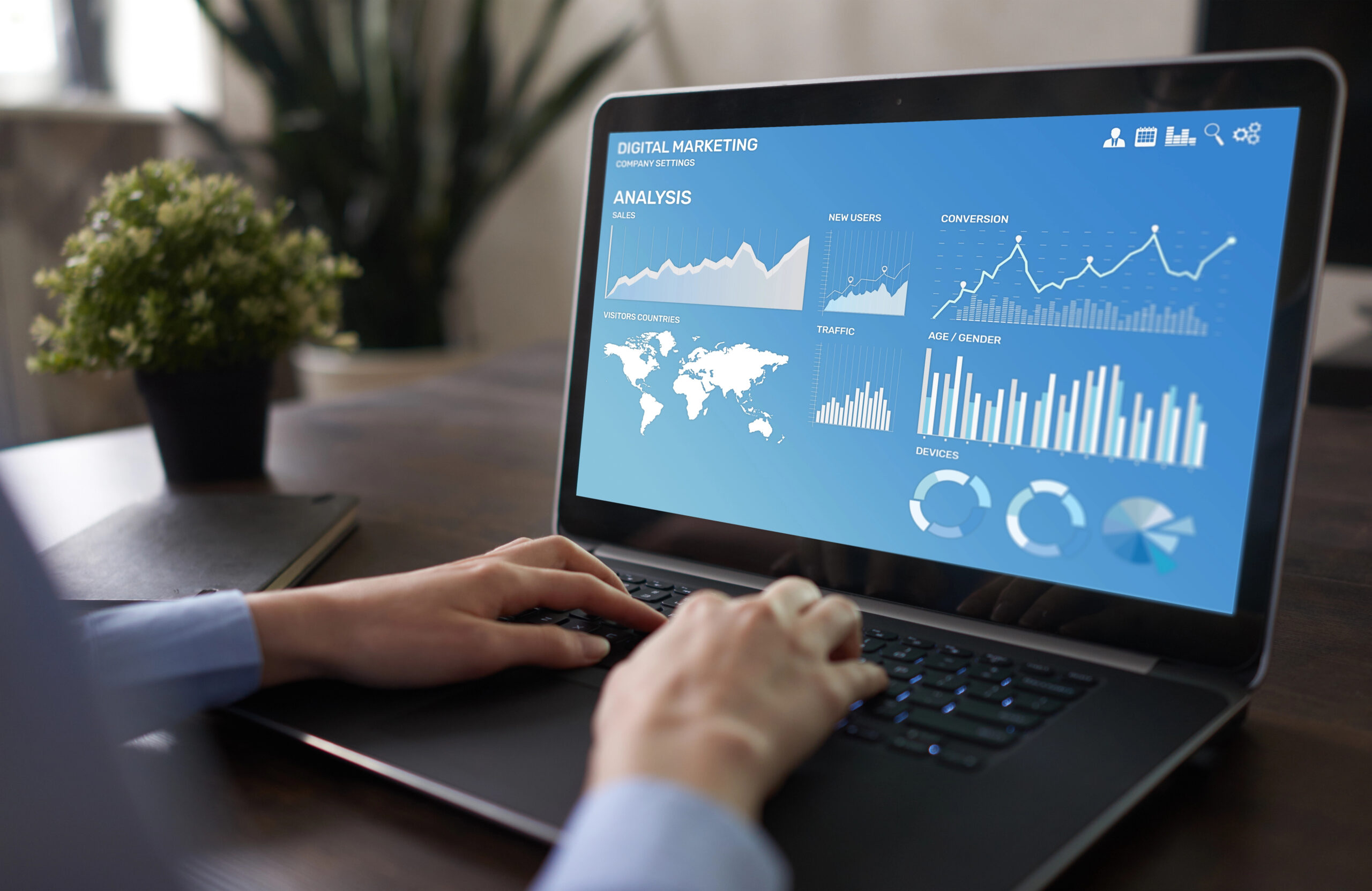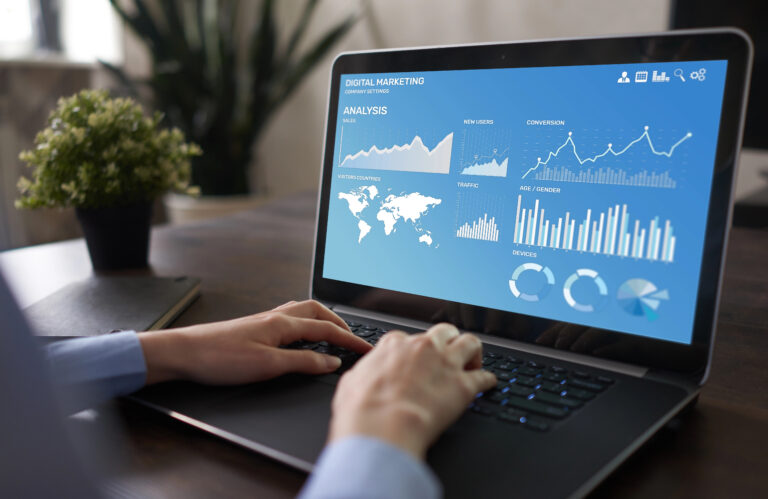If you are a Director of Operations or a related position at a fast-growing company, the following may very well ring true for you. Every week, your email inbox is a steady stream spreadsheets from finance, operations, sales, or any other department in your organization. Some are late, some are riddled with errors, and (frustratingly), none align well enough for you to have 100% certainty of the data in front of you. By the time you eventually piece together the data in a way that makes sense, it’s already outdated. What you really need is the ability to see how the business is performing in real time, from warehouse throughput to financial health, without waiting days for reports that can often contain inaccuracies. That’s precisely where business intelligence dashboards take the stage.
Business intelligence dashboards offer leaders and other stakeholders a clear, real-time view of the most critical data that drives their business. They transform raw information into informed insights that bolster faster, smarter, and more confident decision-making. For operations leaders in industries like field services, aviation, and construction, business intelligence dashboards simply aren’t optional anymore; they are the eyes and ears of modern business intelligence.
The Role of Dashboards in Modern Business Intelligence
At their very core, business intelligence dashboards are visual tools that display key performance indicators (KPIs) your organization relies on to measure success (or lack thereof) so that leaders can continue to make important decisions. Unlike static reports or spreadsheets, dashboards deliver live, interactive data that you can personalize for specific roles and needs within your organization.
For COOs and Directors of Operations, as an example, dashboards are more than a convenience; they have become indispensable business intelligence tools. When configured correctly, they ensure accuracy, speed, and visibility, helping leaders move from hindsight reporting and to a position of proactive decision-making. Whether your KPIs are measured in sales trends, order fulfillment, or service completion rates, business intelligence dashboards deliver clarity where spreadsheets too often create confusion.
Why Dashboards Matter for Decision-Making
Every leader knows the bottlenecks that can (and often so) undermine good decision-making:
- siloed data across disparate systems
- information overload
- unclear goals
- too much latency between events and reports
The result is too predictable: guesswork, inefficiency, and missed opportunities.
Business intelligence dashboards create a solution for all of these pain points by creating a “single source of truth.” Rather than trying to reconcile conflicting reports, leaders can simply log in and immediately see accurate KPIs being updated in real time. At the risk of hyperbole, the difference is like night and day. For example, instead of waiting for the finance team to deliver a month-end report, you can actually see items, such as:
- today’s sales pipeline
- this week’s inventory turns
- open work orders right now
That level of visibility can drastically shorten decision cycles and increase confidence across the entire organization.
Common Use Cases Across Industries
The versatility of high-quality business intelligence software means dashboards can help nearly any department or industry. Some of the more common examples we see at Availent Systems include:
- Business Aviation: Gain the ability to monitor maintenance schedules, compliance data, and financial margins across entire aircraft fleets. Availent Systems’s AviationSuccess integrations bring disparate systems into a single, comprehensive dashboard view.
- Field Services: Track everything from technician productivity, to job completion rates, and even service profitability. Availent’s ServiceTrade Connector for NetSuite eliminates duplicate data entry and provides leaders with instant visibility into field operations.
- Mechanical and Construction Services: Keep a close eye on project budgets, timelines, and compliance metrics to ensure projects stay profitable from a day-to-day perspective, not just at close.
- General Operations: Warehouse fulfillment dashboards can highlight order queues in real time, while executive scorecards help leaders evaluate top-level performance metrics across regions, products, and even subsidiaries.
These are just a few basic use cases that highlight how dashboards give key decision-makers the visibility necessary to align short-term operations with long-term growth.
Native NetSuite Dashboards vs. Enhanced Solutions
For companies already leveraging NetSuite, native tools like SuiteAnalytics and saved searches offer a pretty strong starting point. As organizations scale, though, many of them reach the limits of these native tools. Roadblocks start to pop up in the form of multi-source data consolidation, real-time display across devices, and license costs, for instance.
This is the space where Availent Systems really shines. Our Dashboard Service for NetSuite extends native functionality by giving organizations the ability to:
- Display KPIs, charts, and reports on TVs, monitors, or mobile devices
- Update dashboards in real time, ensuring teams can act on the most up-to-the-minute data.
- Deliver visibility without consuming additional NetSuite user licenses, which saves money while simultaneously increasing access.
- Leverage a solution built directly inside NetSuite code, eliminating the need for a tech stack loaded with third-party apps or risky integrations that come with each new app integration.
What we ultimately deliver then are cost-effective, scalable, and accessible dashboards that get you next-level performance from your NetSuite environment.
Key Features of Effective BI Dashboards
If you have already been researching dashboard solutions, then you already know that not all business intelligence dashboards are created equal. The most effective ones, however, share several key features that maximize their impact:
- Role-based access: Executives need different insights than warehouse staff needs. Dashboards can be tailored for each role.
- Drill-down capability: Leaders must have the ability to move from big-picture KPIs to more granular transaction-level details that explain those KPIs.
- Mobility and accessibility: In the current business environment, dashboards need to be available on any device at any time, whether that’s in the boardroom, the warehouse, and even on the road.
- Scalability: As organizations grow, dashboards absolutely must be able to handle larger datasets, additional subsidiaries, and more complex KPI reporting needs.
For example, a warehouse team might see a real-time pick list of orders, while an executive team sees gross profit margins by region. Both dashboards are powered by the same data but customized to the user’s role, delivering only the most important information needed for each user to perform at their best.
The Future of BI in NetSuite
Looking forward, the future of business intelligence really lies in greater access to self-service analytics and smarter forecasting capabilities. Leaders need the ability to look at data that is critical to the whole organization without relying on IT, which we all know always seems to be under water. The continued exponential advances in artificial intelligence promise to bring improved predictive insights into daily decision-making.
For companies using NetSuite, there is a very clear opportunity here to move past reactive reporting and adopt a more proactive strategy. Every single day, Availent Systems is helping organizations achieve exactly that, with the tools and expertise needed to deliver business intelligence dashboards uniquely tailored to industries like aviation, field services, construction, and more.
In Conclusion
For organizational leaders, the days of manual spreadsheets and delayed reports are numbered (pun intended). Business intelligence dashboards provide a silver platter of the clarity, speed, and confidence you need to make informed decisions and foster an environment of growth. They can empower an organization at every level—from warehouse staff to executives—with real-time, actionable data.
If you are tired of struggling with data silos, inefficient reporting, or limited visibility, now is really the time to rethink your approach. Availent Systems brings together a very deep well of NetSuite expertise with years of industry-specific knowledge to deliver dashboards that scale with your business to help you reach your organizational goals.
If you are curious to see how well-designed business intelligence dashboards can completely level up your decision-making, contact us today for a consultation or demo of our Dashboard Service for NetSuite.








